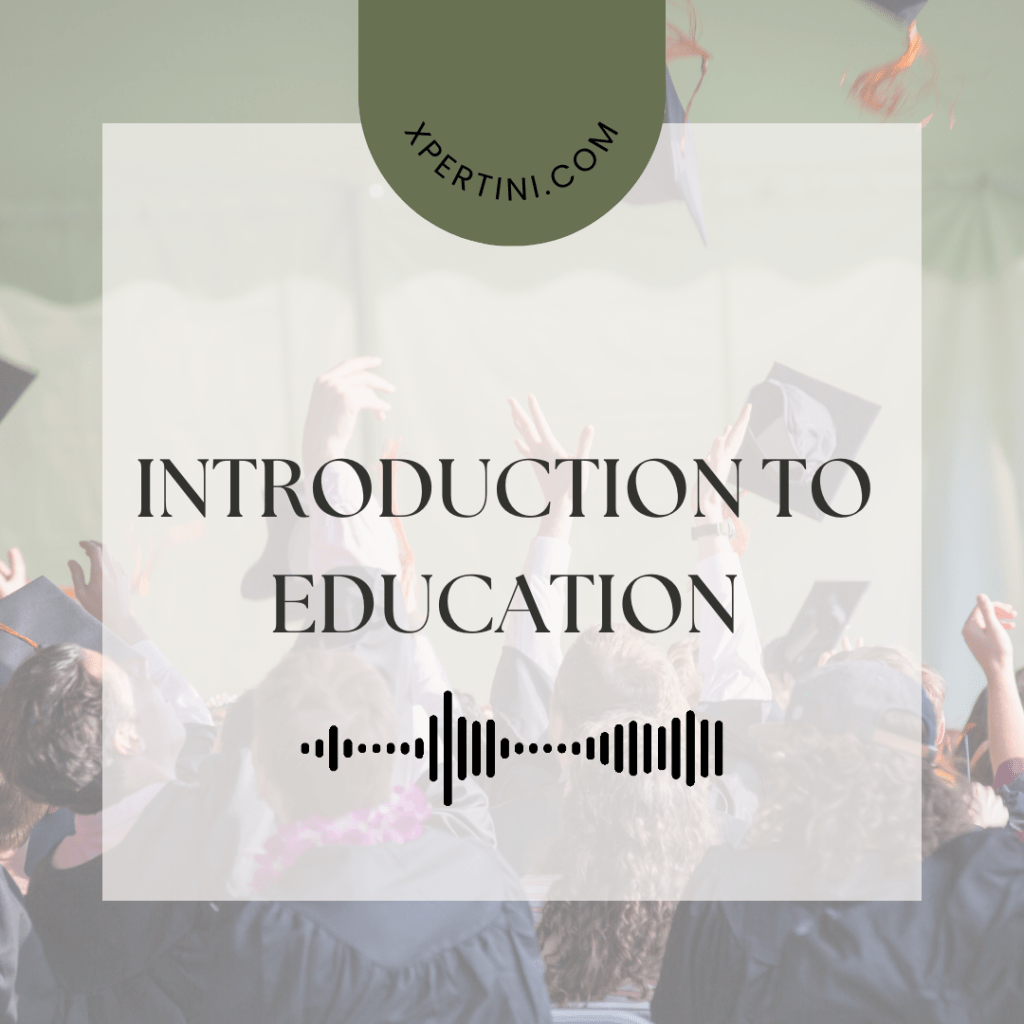Introduction to Education
Course Summary
This comprehensive “Introduction to Education” course serves as a foundational exploration for those aspiring to join the field of education or seeking to enhance their existing knowledge. Delving into the multifaceted aspects of education, the course seamlessly blends theory and practical insights, providing an understanding of the pivotal role education plays in shaping societies.
The course unfolds with a critical examination of the fundamental principles underpinning instructional design, elucidating the application of these principles in diverse educational contexts. As learners progress, they traverse the annals of history, dissecting the evolution of education through different eras and gaining insights into the influential figures and movements that have shaped educational landscapes globally.
Moving forward, the course navigates through the terrain of learning theories, exploring behaviorism, cognitivism, and constructivism. Learners grapple with the practical applications of these theories in teaching practices, fostering a deep comprehension of the pedagogical landscape.
A dedicated exploration of technology in education follows, shedding light on the integration of technology in modern educational settings. The course navigates the tools and platforms instrumental in fostering effective digital learning experiences, preparing learners for the technologically advanced educational landscape.
The global perspective unfolds in the subsequent module, where a comparative analysis of educational systems worldwide takes center stage. Cultural influences on education become apparent, offering an understanding of the diverse approaches to learning across different cultures.
Communication and interpersonal skills become focal points in the curriculum, emphasizing effective communication strategies in educational contexts and the importance of interpersonal skills in cultivating positive learning environments.
The course then guides learners through the essentials of lesson planning and implementation, providing insights into the components of well-structured lesson plans and the seamless implementation of instructional strategies.
As the journey through education unfolds, the course delves into the domain of educational policies, offering an overview of key policies and their impactful roles in shaping teaching and learning outcomes.
Finally, the course culminates with an exploration of diverse career paths in education. Learners gain insights into the skills and qualifications requisite for various roles, empowering them to make informed decisions about their educational career trajectories.
In essence, this course serves as an intellectual voyage, equipping learners with the knowledge and skills necessary to navigate the multifaceted landscape of education in today’s ever-evolving world.
Course Overview
This course provides a foundational understanding of the field of education, exploring its historical evolution, key concepts, and the diverse career opportunities within it. Participants will gain insights into the principles of instructional design and learning theories, equipping them with the knowledge needed for a career in education or to enhance their existing expertise.
Course Objectives
- Understand the historical development and evolution of education.
- Explore key theories and principles of instructional design.
- Analyze various learning theories and their application in educational settings.
- Examine the role of technology in modern education.
- Gain insights into diverse educational systems and practices worldwide.
- Develop effective communication and interpersonal skills relevant to education.
- Identify the components of successful lesson planning and implementation.
- Evaluate the impact of educational policies on teaching and learning.
- Explore the ethical considerations in education.
- Investigate career opportunities within the field of education.
Course Outcomes
- Articulate the historical milestones that have shaped modern education.
- Demonstrate an understanding of key instructional design principles.
- Apply diverse learning theories to instructional practices.
- Evaluate the role of technology in facilitating effective learning experiences.
- Compare and contrast educational systems and practices globally.
- Enhance their communication and interpersonal skills relevant to educational settings.
- Create well-structured lesson plans incorporating effective instructional strategies.
- Analyze the impact of educational policies on teaching and learning outcomes.
- Critically examine ethical considerations in educational decision-making.
- Explore and assess various career opportunities within the field of education.
Course Audience
- Aspiring educators seeking a foundational understanding of the field.
- Professionals in related fields aiming to expand their knowledge in education.

